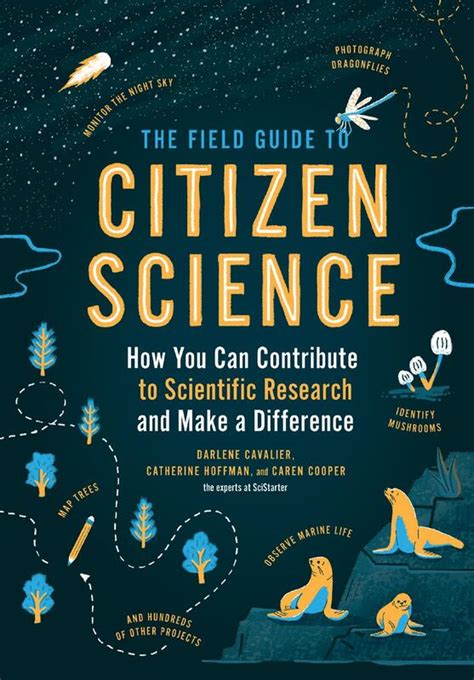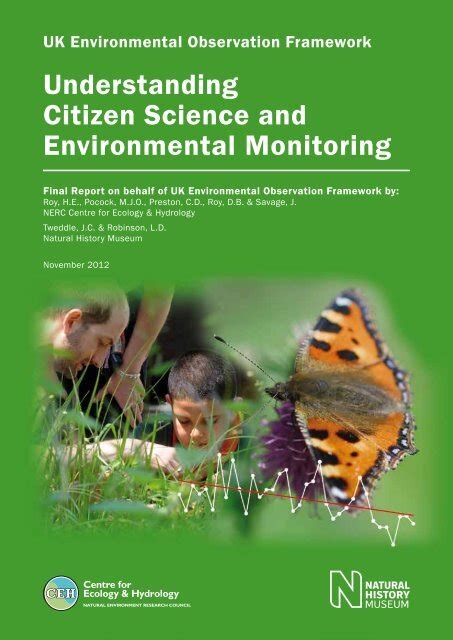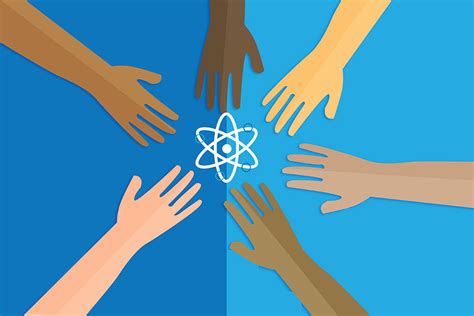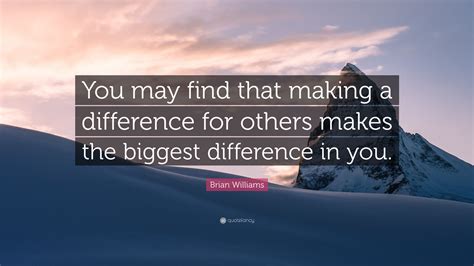Breaking News


Popular News


Discover the power of citizen science and how you can contribute to research. Learn about the involvement of the general public and the benefits to the scientific community.In recent years, there has been a growing interest in citizen science, a concept that empowers individuals from all walks of life to contribute to scientific research. Through citizen science, the general public plays a crucial role in various research projects, providing valuable data and insights that aid scientists in their work. This collaborative approach not only benefits the scientific community by expanding the pool of available resources and knowledge but also allows individuals to play an active role in making a difference.
This blog post will explore the power of citizen science and its impact on research. We will delve into the concept of citizen science, its involvement of the general public, and the numerous benefits it brings to the scientific community. Additionally, we will showcase examples of successful citizen science projects and discuss how such initiatives empower individuals to contribute to and shape the future of scientific discovery. Join us as we uncover the remarkable potential of citizen science and the opportunities it presents for all to participate in cutting-edge research.
Contents

Citizen science is a form of collaboration between scientists and the general public in which ordinary individuals contribute to scientific research. This involvement of the general public in real scientific endeavors allows for the collection of vast amounts of data that would otherwise be impossible for professional scientists to gather on their own.
Through citizen science initiatives, participants are empowered to contribute to research in fields such as astronomy, environmental science, and biology, among others. This collaborative approach not only benefits the scientific community by providing valuable data, but also allows individuals to feel a sense of ownership and connection to the research being conducted.
Examples of citizen science projects include birdwatching surveys, water quality monitoring, and wildlife tracking. These projects give volunteers the opportunity to directly contribute to the scientific understanding of the world around them, ultimately enabling them to make a tangible impact on research and conservation efforts.
By involving everyday people in scientific endeavors, citizen science ultimately empowers individuals to make a difference in the world and fosters a deeper appreciation for the importance of research and data collection.

One of the key aspects of citizen science is the active involvement of the general public in various scientific research projects. Through citizen science, individuals from all walks of life can contribute to the collection, analysis, and interpretation of data, ultimately assisting professional scientists in their work. This participation can take many forms, from simply observing and reporting findings to actively collaborating with research teams in the design and implementation of experiments.
Furthermore, the involvement of the general public in citizen science initiatives not only expands the potential pool of data collectors and researchers, but also provides opportunities for education and inspiration to the participants. By actively engaging in scientific research, citizens become more aware of environmental and societal issues, and develop a sense of ownership and responsibility towards their communities and ecosystems. Additionally, they gain insights into the scientific process and methodologies, which can lead to increased interest in pursuing careers in STEM fields.
Moreover, the involvement of the general public in citizen science projects helps to improve the credibility and relevance of the research outcomes. By involving diverse perspectives and local knowledge, scientists can gain a more comprehensive understanding of complex phenomena and ensure that their findings are applicable and beneficial to the communities they serve. This collaboration also fosters a stronger sense of trust and transparency between the scientific community and the public, ultimately leading to more impactful and inclusive research outcomes.
Overall, the involvement of the general public in citizen science is crucial for the success and impact of scientific research. By empowering individuals to take an active role in addressing real-world problems, citizen science not only advances our collective knowledge, but also fosters a sense of inclusivity and empowerment within our society.

Citizen science projects offer numerous benefits to the scientific community. One of the most significant advantages is the ability to gather a large amount of data from a wide geographic area. By involving members of the general public in various research projects, scientists can collect data that would be impossible to gather on their own. This data can provide valuable insights and contribute to a better understanding of complex scientific phenomena.
Furthermore, citizen science projects often lead to increased public awareness and engagement with scientific issues. This can inspire the next generation of scientists and researchers, as well as promote scientific literacy among the general population. By involving individuals in the process of data collection and analysis, citizen science also promotes a sense of ownership and empowerment among participants, leading to a more collaborative approach to scientific research.
Lastly, the involvement of citizen scientists can lead to cost savings for the scientific community. Traditional research methods can be expensive and time-consuming, while citizen science projects allow for the efficient collection of large datasets at a relatively low cost. This can free up resources for other areas of research and enable scientific organizations to tackle more ambitious projects.

Citizen science projects come in all shapes and sizes, and they cover a wide range of scientific fields. One example of a citizen science project is the Great Backyard Bird Count, where bird enthusiasts around the world spend time in their own backyards, counting and recording the birds they see. This data is then collected and used by scientists to track bird populations and migration patterns. Another example is Project Squirrel, where volunteers report their squirrel observations to help scientists study squirrel behavior and population trends.
Li tag example:
Table tag example:
| Project Name | Description |
|---|---|
| Great Backyard Bird Count | Citizen scientists count and record birds in their backyard to help track bird populations and migration patterns. |
| Project Squirrel | Volunteers report squirrel observations to aid in studying squirrel behavior and population trends. |

The Power of Citizen Science: How Anyone Can Contribute to Research
Empowering Individuals to Make a Difference
Citizen science is a powerful tool that allows individuals from all walks of life to actively participate in scientific research, enabling them to make a meaningful difference in the world. Through the involvement of the general public, citizen science projects harness a vast network of volunteers who contribute their time, expertise, and resources to various research initiatives. This level of community involvement has the potential to bring about positive change and drive important discoveries in a wide range of scientific fields.
One of the key benefits of citizen science is the opportunity it provides to empower individuals by enabling them to actively engage in real scientific investigations. By participating in hands-on research activities, volunteers not only gain a deeper understanding of scientific concepts but also develop a sense of ownership and pride in their contributions. This empowerment fosters a greater sense of connection and commitment to scientific endeavors, leading to more sustained and impactful involvement in citizen science projects.
Examples of successful citizen science projects abound, demonstrating the immense potential for individuals to make a difference in the field of research. From monitoring local wildlife populations to collecting environmental data, volunteers have played a crucial role in generating valuable scientific data that contributes to the broader body of knowledge. This level of public engagement not only benefits the scientific community but also serves to raise awareness and promote environmental conservation and sustainability efforts on a global scale.
| Benefits to the Scientific Community: Examples of Citizen Science Projects |
|---|
|
|
|
|
|
|
|
|
In conclusion, the empowerment of individuals through citizen science is a transformative force that has the potential to drive significant positive change in the world of research. By actively involving the general public in scientific endeavors, citizen science projects not only expand the pool of available resources and expertise but also foster a deeper sense of connection and responsibility for the world around us. Through their meaningful participation, individuals have the power to make a lasting impact on scientific discoveries and contribute to a more informed and sustainable future for our planet.

What is citizen science?
Citizen science is the practice of involving members of the public in scientific research projects, allowing anyone to contribute to the collection and analysis of data.
What are some examples of citizen science projects?
Examples of citizen science projects include bird counting, water quality monitoring, air pollution tracking, and even helping to classify galaxies and discover new planets.
How can anyone get involved in citizen science?
There are many ways to get involved in citizen science, including participating in organized projects, using smartphone apps for data collection, or even starting your own project.
What are the benefits of citizen science?
Citizen science allows for the collection of large amounts of data that would be impossible for professional researchers to gather on their own, and it can also foster public engagement with science and research.
Are there any potential challenges with citizen science?
Challenges with citizen science can include data quality control, ensuring participant safety, and addressing issues of diversity and inclusion in the participant pool.
Can citizen science lead to real scientific discoveries?
Yes, citizen science has contributed to many important scientific discoveries, including the discovery of new species, identification of environmental problems, and advancements in our understanding of the natural world.
What are some resources for finding citizen science projects to participate in?
Websites such as SciStarter, Zooniverse, and the Citizen Science Association can help you find a wide range of citizen science projects to get involved in.